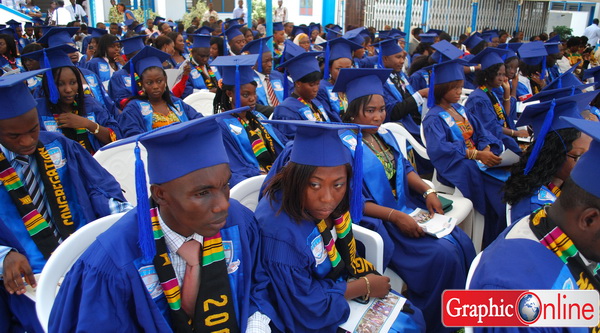The problem of admission into tertiary institutions: A solution
 Over 400,000 students are seeking admission into the tertiary institutions this year. However, infrastructural limitations seem to make it impossible to admit even half of these students.
Over 400,000 students are seeking admission into the tertiary institutions this year. However, infrastructural limitations seem to make it impossible to admit even half of these students.
Advertisement
Institutions have been advised not to admit more than their facilities can accommodate.
So, what happens to those who qualified but cannot be admitted? They may be forced to engage in social vices.
More seriously, the country would lose their talents which need to be nurtured to help in the development of the country. Either way, it is bad for Ghana.
A solution is possible. The premise for the solution is that God has given us the power to think and the freedom to choose. We need to creatively use this power to think and the freedom to choose from God’s creations to have dominion over our problems (admission blues in this case).
What we don’t need is to continue to conform to the standards of this world but rather to be transformed by the renewal of our minds by the word of God that with God, all things are possible. I offer a solution with this premise in mind.
Doubling the intake
Take a hypothetical Sigma University that admits 1,000 new students every year. How can this university double its intake to 2,000 students?
By international standards, a three-credit course should be offered for at least one hour a week for between nine and 13 weeks in a semester.
So, 11 weeks for any course should be acceptable as having been studied effectively. A semester can, therefore, be run within three months.
A year of 12 months gives us four semesters, so the first and third semesters can be used to admit the first batch of 1,000 students and the second and the fourth semesters used to admit the second batch of 1,000 students, giving a total of 2,000 students for the year.
As the first batch of students are in school, the second batch should be sent on attachment to industries, Ghana Education Service (GES) schools, hospitals, farms, and the like, where they can work. Thereafter, they can alternate between school and their places of attachment.
Pressure on facilities
One may argue that there will be pressure on the facilities. Yes, facilities are to be used but not misused or wasted.
Within a semester of three months, there will be three weeks left, two weeks to be used for exams and one week for recess within which non-functioning facilities can be either repaired or replaced before the next batch of students.
There will be NO need to employ new lecturers. Any lecturer engaged in teaching the two batches of students should be paid one and half times the normal salary. For example, a lecturer who is paid Gh¢2,000.00 a month should now be paid GH₵3,000.00.
Further details
The idea presented here can be fine-tuned and extended to cover all tertiary institutions in the country. Lecturers will still have a lot of time to do many things. We waste too much time in this part of the world.
I learnt some millions of cedis have been given to tertiary institutions to expand infrastructure so as to admit more students. One way to use the money effectively in the interim is to apply it to this idea so that the youth do not waste in the streets and create social problems for the country.
We may develop a long-term expansion programme for the whole education sector, which needs serious revamping.
Prof. S.E. Anku
President, Ghana Mathematics Society, [email protected]
Daily Graphic/graphic.com.gh/Ghana
